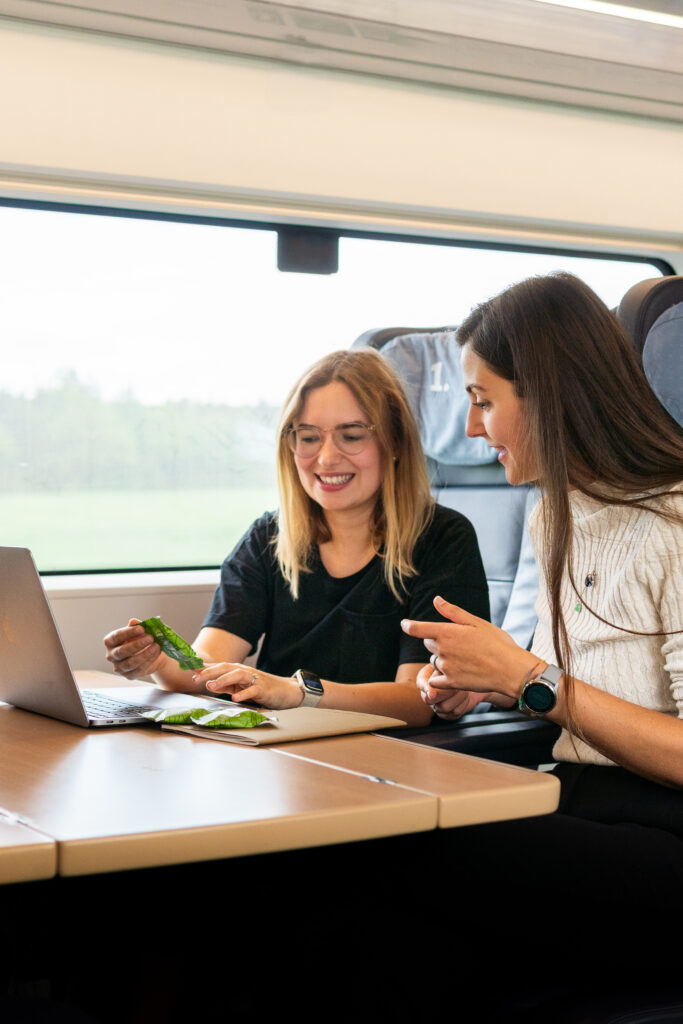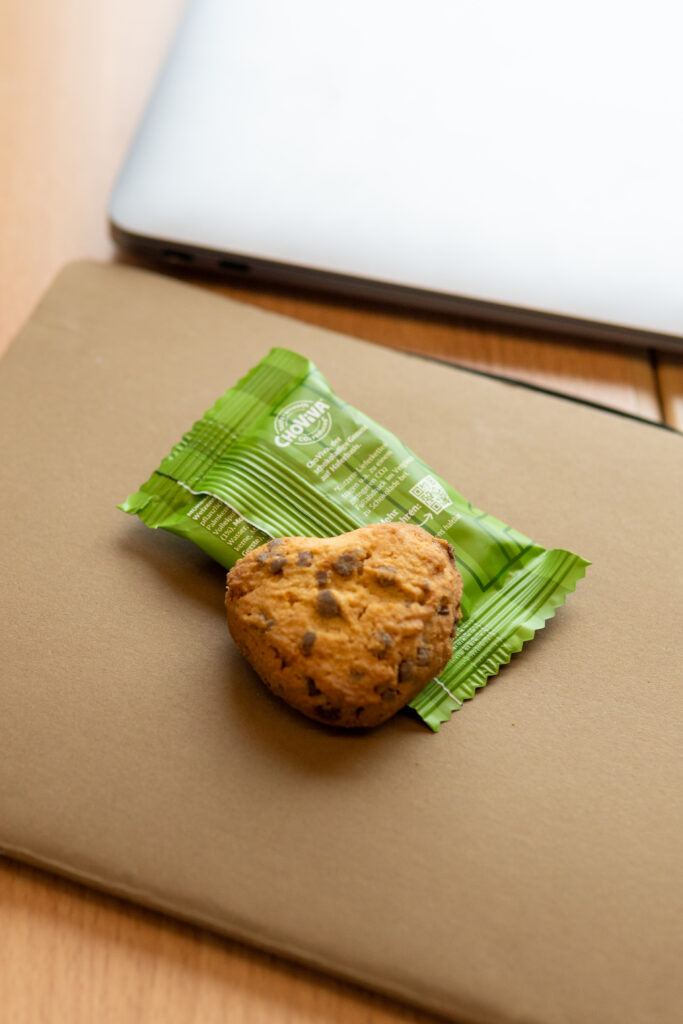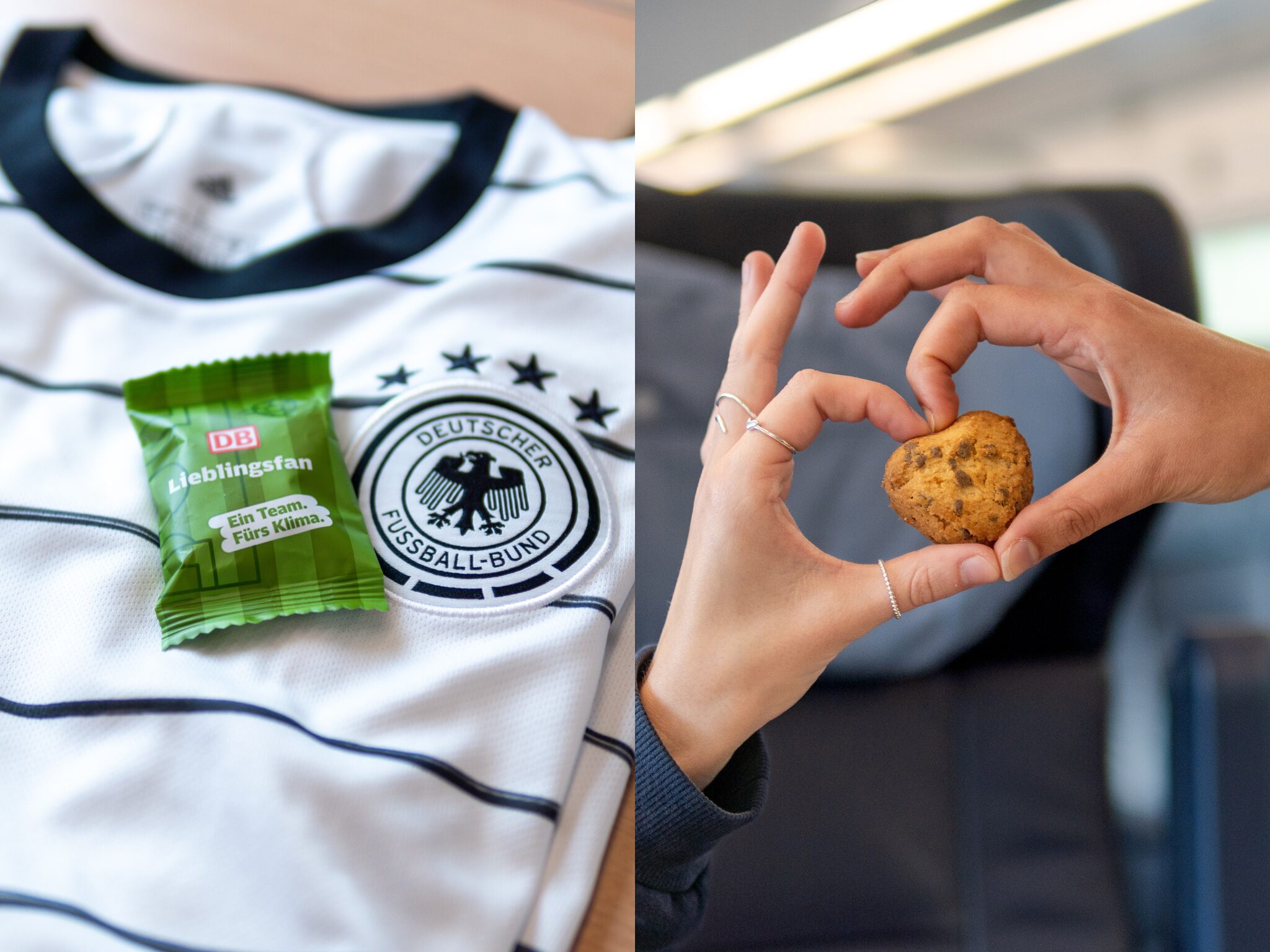Euro 2024: Deutsche Bahn Passengers to Get Free ChoViva Cocoa-Free Chocolate Cookies
5 Mins Read
German national rail company Deutsche Bahn has partnered with Planet A Foods to offer cocoa-free chocolate shortbreads during the Euro 2024 football championship and beyond.
As fans travel to Euro 2024 stadiums across Germany, those taking Deutsche Bahn (DB) trains will now be treated to free chocolate shortbreads, but with a twist. The cookies will feature cocoa-free chocolate from ChoViva, the sub-brand of German food tech startup Planet A Foods.
First-class passengers aboard DB’s Intercity Express (ICE) and Intercity (IC) trains will be offered the heart-shaped shortbreads as part of a multi-year collaboration between the two companies, but starts with a Euro 2024-centric version.
Germany is hosting UEFA’s inter-Europe football championship this summer (June 14 to July 14), and, to mark the occasion, the shortbread will be called Lieblingsfan (favourite fan) for the duration of the tournament. The initiative is designed to raise awareness among millions of football fans about chocolate’s impact on deforestation and associated greenhouse gas emissions.
“Deutsche Bahn is the perfect match for us as a partner. We both pursue the same mission: to save several million tons of CO2 per year,” says Planet A Foods CEO Maximilian Marquart, who co-founded the brand with his sister Sara in 2021. “One by offering sustainable mobility solutions, and one by producing sustainable food ingredients that are decoupled from limited resources. It only makes sense that together we can achieve even more.”
Climate-friendly chocolate goes beyond Euro 2024

The collaboration is a summer version of the Lieblingsgast (favourite guest), a small chocolate handed to DB passengers, which is made from fairly traded cocoa and wrapped in FSC-certified recyclable paper. Part of the rail operator’s climate commitments, the initiative has been ongoing since March 2023.
“The goal is to show appreciation, with sustainability being a central focus for both DB and us,” says Maximilian, whose startup participated in a bidding process to win the DB contract. He cites the brand’s taste and sustainability credentials as the reasons why it was selected.
It means the ChoViva chocolate alternative – made from a base of fermented oats and sunflower seeds – will be part of DB’s lineup on the long-distance trains over the next two summers.
“The cookie is a specific development for the German Railway together with one of our partners,” says Sara, the company’s CTO. “We chose a cookie instead of a chocolate bar as they are distributed over the summer months. The idea was to avoid any problems that might occur with melting and distribution.”
So what’s the difference between the Euro and post-Euro versions? “The cookie itself stays the same,” she says. “What changes is that after the European Football Championship is over, we’ll switch to the Lieblingsgast version again with a new branding in terms of packaging design.”
Maximilian adds that ChoViva is already working on a second iteration of the cookie to further its planet-friendliness. He remains tight-lipped on the details, but says the team is “working on improving different areas even further”.
DB’s track record of climate-friendly food

This is far from the only planet-friendly food offering at DB. The railway company has partnered with multiple companies over the years to cater to consumers’ growing demand for more sustainable catering options.
In fact, since March 2022, more than half of the food offered at its onboard eateries has been meatless, featuring vegan meat analogues, vegetarian snacks and seasonal produce. A few months before that, DB introduced Oatly’s barista oat milk for coffee orders.
Over the last few months, it teamed up with two local vegan seafood brands. The first entailed a chilli-cheese-style baguette with BettaF!sh’s tuna, and the other a noodle stir-fry with Happy Ocean Foods’ soy-based shrimp. The latter was introduced during Veganuary, and featured prominently at the beginning of the menu, which extolled the benefits of a plant-based diet.
Cocoa’s climate impact is a problem

But, while meat is the most destructive food for the planet – releasing twice as many greenhouse gas emissions into the atmosphere than plant-based foods – chocolate itself has a sizeable footprint. Dark chocolate, for example, is the second most polluting food, second only to beef. Intensive deforestation plays a big part here, and the countereffects of climate change mean a third of all cocoa trees could die out by 2050.
By using traditional fermentation and roasting methods – but eschewing the cocoa bean – ChoViva (formerly NoCoa/QOA) manages to bring down carbon emissions by 90% per kg of chocolate. This has been recognised by CPG behemoths like Lindt, Kölln, Rewe, and Griesson de Beukelaer, which have released various products using the cocoa-free chocolate.
However, ChoViva’s chocolate for the DB cookies does still use palm oil, though this is RSPO-certified, which suggests it’s sourced from certified production units and is produced according to strict ecological and social criteria. In an interview with Green Queen last year, Maximilian explained that palm oil can become essential for some of its collaborations. “If we [use it], we support sustainable palm oil cultivation and work with partners who do the same,” he explained.
“For some special applications, we couldn’t yet get rid of palm oil due to technical reasons. We try to limit those applications,” added Sara. She had revealed that the company was working on its own alternatives to palm oil and other cocoa fats.
Asked about progress on this front, she now says: “We put a lot of effort and budget into our cocoa fat alternative. We’re progressing according to our time plan right now, in terms of development.”




